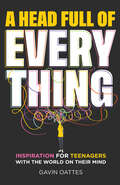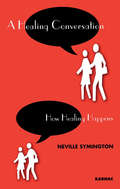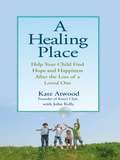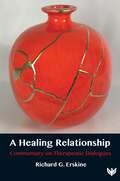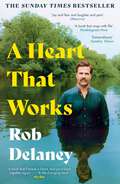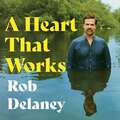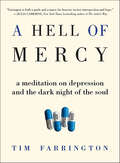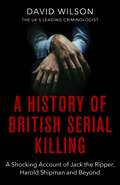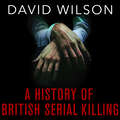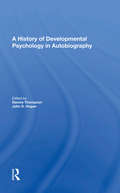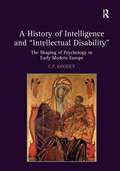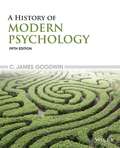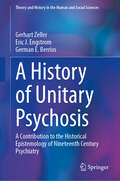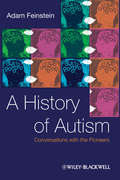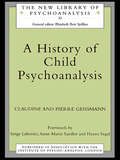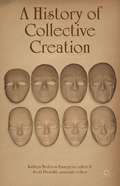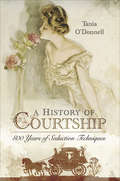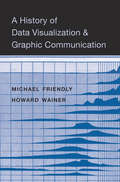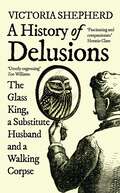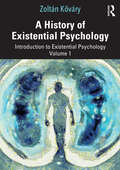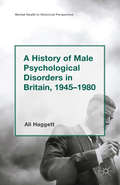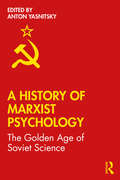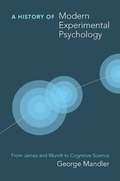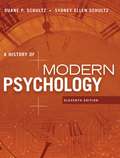- Table View
- List View
A Head Full of Everything: Inspiration for Teenagers With the World on Their Mind
by Gavin OattesWelcome to life. Teenage life. The most awkward 7 years you’ll ever have; 84 months of change, 364 weeks of weird and 2,555 days of scrolling and inconvenience. In the grand scheme of life, it’s not a lot. Unless you’re an actual teenager, in which case, it’s EVERYTHING! “It’s the best years of your life!” they tell us. And yet, while it should be, for so many it just doesn’t feel like it. For most it’s an emotional assault course of acceptance, stress, anxiety, heartbreak and peer pressure, all whilst navigating the ‘hashtagony’ of social media. Misunderstood by society and misrepresented by the media, teenagers have it tough. A Head Full of Everything demonstrates that being a teenager doesn’t have to suck. And when it does, there’s some cool things you can do to make it suck a little less. This book will challenge you to embrace your inner weird, to never grow up, be true to yourself, protect your mental health and be sure that for your 7 glorious teenage years, you act your age. Literally. Bestselling author, award-winning comedian and international keynote speaker, Gavin Oattes has written a personal development title for teens with a difference – there’s no waffle, no dad chat, no fluff. Full of hilarious, real-life inspiration and a few crazy ideas along the way, A Head Full of Everything will leave you feeling motivated, energised and reassured that nobody has life all figured out.
A Healing Conversation: How Healing Happens
by Neville SymingtonHow is it that someone can be healed of mental illness through talking with another person? This is what Neville Symington examines in this book. He believes that a person in their innermost being registers the essential character of the other person. The senses detect the outer contours of the personality but a deeper form of knowledge connects directly to the other person's inner being. Healing comes about if the inner world of the one is guided by principles that transcend the particular and this fosters a giving-ness in the one and the other. The egoism in each is then subsumed into a higher unity which results in a new subjective understanding. Personal understanding is a sign that a new ordering of the inner ingredients of the personality has taken place; that the form of being in the one has the capacity to generate in the other this new way of being. The author explores this fundamental reality that underlies human communication and teases out how this brings about healing.
A Healing Place
by Kate AtwoodReal-world advice for caregivers of grieving children?from the founder of the nationally acclaimed, non-profit organization Kate?s Club. Kate?s Club is dedicated to empowering children and teens who have lost loved ones. Based on its founder?s down-to-earth philosophy on how to handle grief, A Healing Place aims to help parents cope with the realities and daily struggles grieving children face in a forthright, compassionate manner. The book is written from Kate?s own personal experiences after having lost, at the age of 12, her mother to breast cancer, as well as featuring experiences of the many families she has encountered through Kate?s Club. Chapter topics include: ? Embracing, not erasing memories ? Giving the child a voice ? How caregivers can be strong role models ? Handling transitions and traditions .
A Healing Relationship: Commentary on Therapeutic Dialogues
by Richard G ErskineA Healing Relationship is about a relationally focused psychotherapy, how the author works, and why. The first couple of chapters provide a brief orientation to relationally focused aspects of an integrative psychotherapy. The heart of the book are the transaction-by-transaction examples of what actually occurred in the psychotherapeutic dialogue. It is composed of three verbatim transcripts along with annotations about what the author was thinking and feeling when he engaged in psychotherapy with each client. Many of the annotated comments as well as the actual therapeutic dialogue will describe some elements of the process of relationally focused psychotherapy and the reasoning behind his therapeutic comments, silences, and challenge. This book is intended to elicit a dialogue between the reader and the psychotherapist / author and is written as though a personal letter. Psychotherapy is such an interpersonal encounter - an intimate meeting of two souls. No two psychotherapists will ever do the same therapy, even with the same client, even if they use the same theory and methods. It is important to appreciate how each think about theories, the concepts that underlie the methods chosen, how each assess the therapeutic setting, and express personal temperament. Richard G. Erskine has taken an important step in communication about the practice of psychotherapy. Not only with this excellent book but also with video footage of the three therapy sessions, which will be made accessible to purchasers of the book. The overarching aim is to stimulate important conversations between colleagues; to both agree and disagree, to influence each other, to grow professionally, and to share knowledge.
A Heart That Works
by Rob DelaneyIn this memoir of loss, acclaimed writer and comedian Rob Delaney grapples with the fragile miracle of life, the mysteries of death, and the question of purpose for those left behind.When you're a parent and your child gets hurt or sick, you not only try to help them get better but you also labour under the general belief that you can help them get better. That's not always the case though. Sometimes the nurses and the doctors can't fix what's wrong. Sometimes children die.Rob Delaney's beautiful, bright, gloriously alive son Henry died. He was one when he was diagnosed with a brain tumour. An experience beyond comprehension, but an experience Rob must share. Why does he feel compelled to talk about it, to write about it, to make people feel something like what he feels when he knows it will hurt them? Because, despite Henry's death, Rob still loves people. For that reason, he wants them to understand.A Heart That Works is an intimate, unflinching and fiercely funny exploration of loss - from the harrowing illness to the vivid, bodily impact of grief and the blind, furious rage that follows, through to the forceful, unstoppable love that remains. This is the story of what happens when you lose a child, and everything you discover about life in the process.
A Heart That Works: THE SUNDAY TIMES BESTSELLER
by Rob DelaneyThe comedian and star of Catastrophe's devastatingly moving memoir about his young son's death.In this devastating, beautiful and deeply moving memoir of the loss of his son, Rob Delaney explores what life really means, and why it matters. When you're a parent and your child gets hurt or sick, you not only try to help them get better but you also labour under the general belief that you can help them get better. That's not always the case though. Sometimes the nurses and the doctors can't fix what's wrong. Sometimes children die.Rob's beautiful, bright, deeply alive son Henry died. This is the story of what happens when you lose a child, and everything you discover about life in the process. Why does he feel compelled to talk about it, to write about it, to disseminate information designed to make people feel something like what he felt? What his wife feels? What his other sons feel? Done properly or well, it will hurt them. Why does he want to hurt people? Because, despite the death of his son, Rob still loves people. For that reason, he wants them to understand.(P)2022 Hodder & Stoughton Limited
A Hell of Mercy: A Meditation on Depression and the Dark Night of the Soul
by Tim Farringtonn this unflinching look at depression and the human struggle to find hope in its midst, acclaimed author Tim Farrington writes with heartrending honesty of his lifelong struggle with the condition he calls "a hell of mercy." With both wry humor and poignancy, he unravels the profound connection between depression and the spiritual path, the infamous dark night of the soul made popular by mystic John of the Cross. While depression can be a heartbreaking time of isolation and lethargy, it can also provide powerful spiritual insights and healing times of surrender. When doctors prescribe medication, patients are often left feeling as if part of their very selves has been numbed in order to become what some might call "normal." Farrington wrestles with profound questions, such as: When is depression a part of your identity, and when does it hold you back from realizing your potential? In the tradition of Darkness Visible and An Unquiet Mind, A Hell of Mercy is both a much needed companion for those walking this difficult terrain as well as a guide for anyone who has watched a loved one grapple with this inner emotional darkness.
A Hidden Life: A Memoir of August 1969
by Johanna ReissIn 1969, Reiss made the trip to Holland to chronicle the two years, seven months, and one day she had spent hiding from the Nazis. Subtle and disturbing, the book is a powerful consideration of memory, violence, and loss, told in a stunning and sparse narrative style.
A History Of British Serial Killing: The Shocking Account of Jack the Ripper, Harold Shipman and Beyond
by David WilsonBE THE FIRST TO READ DAVID WILSON'S NEW TRUE CRIME BOOK "A PLOT TO KILL" BY PRE-ORDERING NOW Expanded and updated, this is the definitive history of British serial killing 1888-2020 - by the UK's leading criminologist, David WilsonIn this fascinating and informative book, Professor David Wilson tells the stories of Britain's serial killers from Jack the Ripper to the extraordinary Suffolk Murders case. David Wilson has worked as a Prison Governor and as a profiler, and has been described as the UK's leading expert on serial killers. His work has led him to meet several of the UK's deadliest killers, and build up fascinating insights into what makes a serial killer - and who they are most likely to target. A vivid narrative history and a call for prison and social reform, Professor Wilson's new book is a powerful and gripping investigation of Britain's serial murderers.
A History Of British Serial Killing: The Shocking Account of Jack the Ripper, Harold Shipman and Beyond (The Books of Babel)
by David WilsonBE THE FIRST TO READ DAVID WILSON'S NEW TRUE CRIME BOOK "A PLOT TO KILL" BY PRE-ORDERING NOW Expanded and updated, this is the definitive history of British serial killing 1888-2020 - by the UK's leading criminologist, David WilsonIn this fascinating and informative book, Professor David Wilson tells the stories of Britain's serial killers from Jack the Ripper to the extraordinary Suffolk Murders case. David Wilson has worked as a Prison Governor and as a profiler, and has been described as the UK's leading expert on serial killers. His work has led him to meet several of the UK's deadliest killers, and build up fascinating insights into what makes a serial killer - and who they are most likely to target. A vivid narrative history and a call for prison and social reform, Professor Wilson's new book is a powerful and gripping investigation of Britain's serial murderers.
A History Of Developmental Psychology In Autobiography
by Dennis N ThompsonThe ten original essays presented here chart the personal and professional life experiences of these remarkable contributors from the discipline of developmental psychology. Employing the autobiographical approach, the book provides a unique view of how research and scientific inquiries are conducted while adding the human dimension generally absen
A History Of Intelligence And 'intellectual Disability': The Shaping Of Psychology In Early Modern Europe
by C. F. GoodeyStarting with the hypothesis that not only human intelligence but also its antithesis 'intellectual disability' are nothing more than historical contingencies, C.F. Goodey's paradigm-shifting study traces the rich interplay between labelled human types and the radically changing characteristics attributed to them. From the twelfth-century beginnings of European social administration to the onset of formal human science disciplines in the modern era, A History of Intelligence and 'Intellectual Disability' reconstructs the socio-political and religious contexts of intellectual ability and disability, and demonstrates how these concepts became part of psychology, medicine and biology. Goodey examines a wide array of classical, late medieval and Renaissance texts, from popular guides on conduct and behavior to medical treatises and from religious and philosophical works to poetry and drama. Focusing especially on the period between the Protestant Reformation and 1700, Goodey challenges the accepted wisdom that would have us believe that 'intelligence' and 'disability' describe natural, trans-historical realities. Instead, Goodey argues for a model that views intellectual disability and indeed the intellectually disabled person as recent cultural creations. His book is destined to become a standard resource for scholars interested in the history of psychology and medicine, the social origins of human self-representation, and current ethical debates about the genetics of intelligence.
A History Of Modern Psychology (Fifth Edition)
by C. James GoodwinThe enhanced 5th Edition of Goodwin's series, A History of Modern Psychology, explores the modern history of psychology including the fundamental bases of psychology and psychology's advancements in the 20th century.
A History of 'Unitary Psychosis': A Contribution to the Historical Epistemology of Nineteenth Century Psychiatry (Theory and History in the Human and Social Sciences)
by German E. Berrios Gerhart Zeller Eric J. EngstromGerhart Zeller&’s prize-winning 1961 study of the history of the concept of unitary psychosis has never before been published in German or English. To date, the manuscript remains by far the best historical account of the early development of the concept in Germany. The editors&’ introduction analyzes Zeller&’s monograph on three temporal levels. First, as a rediscovered original contribution to historical scholarship on nineteenth century psychiatric classification. Second, as an historical document in its own right, situated on the threshold between the murderous atrocities of the Holocaust and the psychiatric reforms of the 1970s and &’80s (Psychiatrie-Enquête). Third, as a unique contribution to post-Neo-Kraepelinian discourse and to the critiques of contemporary psychiatric nosologies (DSM) and research agendas (RDoC). In helping to elucidate the historical evolution of dimensional approaches to psychiatric classification, the monograph is likely to resonate within wider current biomedical trends toward personalized medicine and molecular diagnostics, and to find a readership among psychiatric practitioners and historians alike.
A History of Autism
by Adam FeinsteinThis unique book is the first to fully explore the history of autism - from the first descriptions of autistic-type behaviour to the present day. Features in-depth discussions with leading professionals and pioneers to provide an unprecedented insight into the historical changes in the perception of autism and approaches to itPresents carefully chosen case studies and the latest findings in the fieldIncludes evidence from many previously unpublished documents and illustrationsInterviews with parents of autistic children acknowledge the important contribution they have made to a more profound understanding of this enigmatic condition
A History of Child Psychoanalysis (The New Library of Psychoanalysis #Vol. 30)
by the late Geissmann Claudine GeissmannChild analysis has occupied a special place in the history of psychoanalysis because of the challenges it poses to practitioners and the clashes it has provoked among its advocates. Since the early days in Vienna under Sigmund Freud child psychoanalysts have tried to comprehend and make comprehensible to others the psychosomatic troubles of childhood and to adapt clinical and therapeutic approaches to all the stages of development of the baby, the child, the adolescent and the young adult. Claudine and Pierre Geissmann trace the history and development of child analysis over the last century and assess the contributions made by pioneers of the discipline, whose efforts to expand its theoretical foundations led to conflict between schools of thought, most notably to the rift between Anna Freud and Melanie Klein. Now taught and practised widely in Europe, the USA and South America, child and adolescent psychoanalysis is unique in the insight it gives into the psychological aspects of child development, and in the therapeutic benefits it can bring both to the child and its family.
A History of Collective Creation
by Kathryn Mederos Syssoyeva Scott ProudfitCollective creation - the practice of collaboratively devising works of performance - rose to prominence not simply as a performance making method, but as an institutional model. By examining theatre practices in Europe and North America, this book explores collective creation's roots in the theatrical experiments of the early twentieth century.
A History of Courtship: 800 Years of Seduction Techniques
by Tania O'DonnellExplore 800 years of lust, love, and loss.The author takes the reader on a journey from medieval courtly love, through to the sexual license of the Restoration, and Victorian propriety. Pick up historical 'dating tips', from how to court (or be courted); write romantic love letters, give and receive gifts, propose and pose as a sighing swain. A historical approach to the problem of finding a mate, with case studies of classic romantic mistakes and plenty of unusual tales. In the fourteenth century young men tried to impress the ladies with their footwear, donning shoes with pointed toes so long that they had to be secured with whalebone presumably because size mattered!
A History of Data Visualization and Graphic Communication
by Howard Wainer Michael FriendlyA comprehensive history of data visualization—its origins, rise, and effects on the ways we think about and solve problems. With complex information everywhere, graphics have become indispensable to our daily lives. Navigation apps show real-time, interactive traffic data. A color-coded map of exit polls details election balloting down to the county level. Charts communicate stock market trends, government spending, and the dangers of epidemics. A History of Data Visualization and Graphic Communication tells the story of how graphics left the exclusive confines of scientific research and became ubiquitous. As data visualization spread, it changed the way we think. Michael Friendly and Howard Wainer take us back to the beginnings of graphic communication in the mid-seventeenth century, when the Dutch cartographer Michael Florent van Langren created the first chart of statistical data, which showed estimates of the distance from Rome to Toledo. By 1786 William Playfair had invented the line graph and bar chart to explain trade imports and exports. In the nineteenth century, the “golden age” of data display, graphics found new uses in tracking disease outbreaks and understanding social issues. Friendly and Wainer make the case that the explosion in graphical communication both reinforced and was advanced by a cognitive revolution: visual thinking. Across disciplines, people realized that information could be conveyed more effectively by visual displays than by words or tables of numbers. Through stories and illustrations, A History of Data Visualization and Graphic Communication details the 400-year evolution of an intellectual framework that has become essential to both science and society at large.
A History of Delusions: The Glass King, a Substitute Husband and a Walking Corpse
by Victoria Shepherd&‘Fascinating and compassionate&’ Horatio Clare The King of France – thinking he was made of glass – was terrified he might shatter…and he wasn&’t alone. After the Emperor met his end at Waterloo, an epidemic of Napoleons piled into France&’s asylums. Throughout the nineteenth century, dozens of middle-aged women tried to convince their physicians that they were, in fact, dead. For centuries we&’ve dismissed delusions as something for doctors to sort out behind locked doors. But delusions are more than just bizarre quirks – they hold the key to collective anxieties and traumas. In this groundbreaking history, Victoria Shepherd uncovers stories of delusions from medieval times to the present day and implores us to identify reason in apparent madness.
A History of Existential Psychology: Introduction to Existential Psychology Volume 1
by Zoltán KőváryThe first in a two-part set, this book takes a deep dive into the history and theory of existential psychology.Beginning with a discussion of the “existentialism and psychology problem,” the book presents the philosophical and historical roots of existential psychology. It introduces the most important philosophical schools in the development of existentialism and their creators, such as Kierkegaard, Nietzsche, Heidegger and Sartre, as well as the literary roots of existentialism in the writings of Dostoevsky and Kafka and the important contribution of psychoanalysis and phenomenological psychiatry. The book then goes on to look at the existential psychology schools, including daseinsanalysis, logotherapy and existential analysis, the existential-humanistic school and the existential-phenomenological school.Going beyond the questions of therapy and counseling that typically make up the study of existential psychology, the book offers the ultimate introduction for students and scholars of this fascinating and deeply rooted discipline. It may also interest professionals working in related fields.
A History of Male Psychological Disorders in Britain, 1945-1980 (Mental Health in Historical Perspective)
by Alison HaggettThis book is open access under a CC BY license and explores the under-researched history of male mental illness from the mid-twentieth century. It argues that statistics suggesting women have been more vulnerable to depression and anxiety are misleading since they underplay a host of alternative presentations of 'distress' more common in men.
A History of Marxist Psychology: The Golden Age of Soviet Science
by Anton YasnitskyAn illuminating and original collection of essays on 20th century Russian psychology, offering unparalleled coverage of the scholarship of Vygotsky and his peers. Yasnitsky et al. challenge our assumptions about the history of Soviet science and the nature of Soviet Marxism and its influence on psychological thinking. He significantly broadens the discussion around Vygotsky’s life and work and its historical context, applying theories of other notable thinkers such as Alexander Luria and the much-neglected philosopher/psychologist Sergei Rubinstein, alongside key movements in history, such as the pedology and psychohygiene. A diverse range of researchers from countries such as Argentina, Brazil, Canada, France, Russian Federation, Switzerland, Ukraine, and the UK, give this book a truly global outlook. This is an important and insightful text for undergraduate and postgraduate students and scholars interested in the history of psychology and science, social and cultural history of Russia and Eastern Europe, Marxism, and Soviet politics.
A History of Modern Experimental Psychology: From James and Wundt to Cognitive Science
by George MandlerMandler traces the evolution of modern experimental and theoretical psychology from these beginnings to the cognitive revolution of the late 20th century. He emphasizes the social and cultural context, showing how different theoretical developments reflect the values of the society.
A History of Modern Psychology
by Duane P. Schultz Sydney Ellen SchultzThe focus of this book is the history of modern psychology, the period beginning in the late nineteenth century, when psychology became a separate and independent discipline. Although, the authors briefly review earlier philosophical thought, they concentrate on issues directly related to the establishment of psychology as a new and distinct field of study. The purpose is to present a history of modern psychology, not the centuries of philosophical work that preceded it. Although the chapters are organized in terms of the schools of thought, these systems resulted from the work of individual scholars, researchers, organizers, and promoters. With the hindsight of history, the authors trace the pattern and the continuity of the development of modern psychology.
